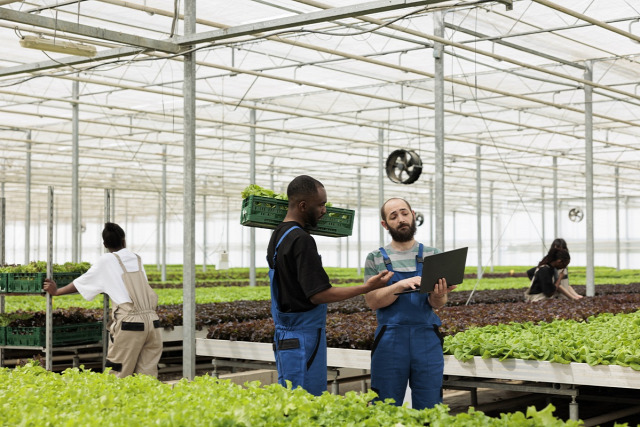
In the quest for sustainable and eco-friendly agricultural practices, the Carbon Neutral Farming Market has emerged as a beacon of hope.
Carbon neutral farming, also known as carbon-neutral agriculture, aims to balance the carbon emissions generated by agricultural activities with carbon removal or offsetting measures. This holistic approach not only mitigates the environmental impact but also contributes to building resilient and regenerative farming systems.
Through the active promotion and implementation of carbon-neutral farming practices, Governments also play a crucial role in mitigating climate change and fostering a sustainable future for agriculture and the planet. The regulatory framework governing global carbon-neutral farming exhibits variations across countries and regions.
Key Trends and Dynamics
-
Carbon Sequestration Practices: Carbon-neutral farming emphasizes practices that enhance carbon sequestration in soils. Techniques such as cover cropping, agroforestry, and reduced tillage contribute to increased soil organic carbon, promoting long-term sustainability.
-
Renewable Energy Integration: The integration of renewable energy sources, such as solar and wind power, is a prominent trend. Carbon-neutral farms harness clean energy to power operations, reducing reliance on fossil fuels and minimizing carbon footprints.
-
Precision Agriculture Technologies: Precision agriculture plays a pivotal role in carbon-neutral farming. Technologies like GPS-guided tractors, sensor-based irrigation, and data analytics optimize resource use, mitigating greenhouse gas emissions associated with inefficient practices.
-
Circular Economy Practices: Embracing circular economy principles, carbon-neutral farming promotes the reuse and recycling of agricultural by-products. Waste materials, such as crop residues and organic matter, are utilized for energy generation or returned to the soil as organic fertilizers.
Request A Free Detailed Sample on Carbon Neutral Farming Market Report!
Global Regional Perspectives
- North America: North America stands at the forefront of carbon-neutral farming initiatives. The region's commitment to sustainable agriculture, coupled with governmental support and technological innovation, fuels the market's growth.
- Europe: European countries are actively promoting carbon-neutral farming through policy frameworks and subsidies. Agroecological practices and the Common Agricultural Policy (CAP) contribute to the region's leadership in sustainable agriculture.
- Asia-Pacific: In the Asia-Pacific region, countries like India and China are recognizing the need for carbon-neutral practices. Initiatives promoting organic farming, afforestation projects, and the adoption of renewable energy showcase a growing commitment to sustainability.
Innovative Practices Shaping the Future
- Agroforestry Systems: Agroforestry integrates trees and shrubs into traditional farming systems, fostering biodiversity, improving soil health, and sequestering carbon. This practice exemplifies the harmonious coexistence of agriculture and environmental conservation.
- Carbon Offsetting Partnerships: Carbon-neutral farms often engage in partnerships with carbon offsetting organizations. These collaborations support projects that reduce or capture carbon emissions elsewhere, ensuring a net-zero or even carbon-negative balance.
- Blockchain for Traceability: Utilizing blockchain technology for supply chain traceability is gaining traction. Carbon-neutral farms leverage blockchain to provide transparent and verifiable information about the environmental impact of their produce, fostering consumer trust.
Future Outlook
- Technological Innovations: The continuous evolution of technologies, including artificial intelligence and remote sensing, will enhance precision and efficiency in carbon-neutral farming practices. These innovations will contribute to more accurate monitoring and decision-making.
- Global Collaboration for Sustainability: Global collaboration among governments, agricultural organizations, and stakeholders is crucial. Shared knowledge, best practices, and international agreements will accelerate the adoption of carbon-neutral farming on a larger scale.
- Consumer Education and Demand: Consumer awareness and demand for sustainably produced food will play a pivotal role. As consumers prioritize eco-friendly products, carbon-neutral farming practices will become a market necessity, influencing agricultural supply chains globally.
Conclusion
The Carbon Neutral Farming Industry stands at the forefront of a sustainable agricultural revolution. As the world grapples with environmental challenges, carbon-neutral farming offers a roadmap towards a regenerative and resilient future for agriculture.

